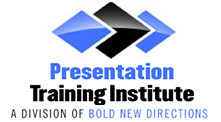1. Know Your Material
You can’t be an authority on something you know nothing about. Therefore, spend time thoroughly researching your topic before the presentation. Educate yourself as much as possible so you can confidently share your knowledge. In fact, you should know your subject matter so well that you could deliver your presentation without any notes. When you can speak clearly about a subject matter and make it look easy, it is extremely impressive to an audience and immediately puts you in the category of an authority on the topic.Â
2. Stay Relevant
Even if you are extremely knowledgeable about your topic, if you don’t deliver the material in a way that is relevant to your audience, they will not view you as an authority the same as they would someone who shared something of immediate value. Familiarize yourself with current issues or problems facing your audience and speak to those specific needs.Â
3. Capture Their Attention Right Away
The first few minutes of your presentation are crucial, as this is your chance to make a strong first impression. A great opener sets the tone for the rest of your presentation, so take the opportunity to command the attention of your audience right away.Â
4. Speak Definitively
You will never convince your audience of anything if you are using phrases like “I think†or “I’m pretty sure that.†If you are going to say something, say it with confidence. Therefore, replace those phrases with “I know†or “I can assure you that.â€Â
5. Provide Evidence
If you want to appear as a credible authority in your industry, you need to provide evidence that backs up your claims. You can use graphs, charts, demonstrations, or other visuals to prove your points. Not only will this show the audience that you really do know your stuff, but it also makes your presentation more memorable and engaging.Â
6. Strong Body Language
Powerful stances, good eye contact, voice inflection, and meaningful gestures are all excellent techniques for coming across as an authority in your industry. Rehearse your body language in front of a mirror or record yourself so you can get a better idea of how your audience will see you.Â
7. Tell a Story
A well told story can captivate an audience. After all, stories are how we relate to each other and they allow speakers to make emotional connections with their audience. Whether you are explaining data or pitching a new product, bring your topic to life with a story.
8. Slow Down
Authoritative speakers understand the importance of slowing the pace of their presentation. If you take the time to add a dramatic pause after an important point has been made, your words will resonate with the audience. Insert silence before and after profound statements, and give your audience time to absorb the information.Â
9. Glance, Don’t ReadÂ
It’s perfectly natural to want to have a few notes by your side, but the majority of your presentation should be given with little attention to your notes. You don’t have to memorize the entire presentation, but a credible speaker has practiced and rehearsed enough beforehand to know their material.Â
10. Rehearse
It can’t be said enough how important it is to practice your presentation. No matter how knowledgeable you really are, your audience will never find your presentation credible if you are stumbling over words, reading from a slide, or nervously checking your notes. Practice in front of friends or coworkers who can provide helpful feedback. Get used to speaking in front of of a live audience, working on eye contact, body language, tone of voice, and overall delivery.Â
